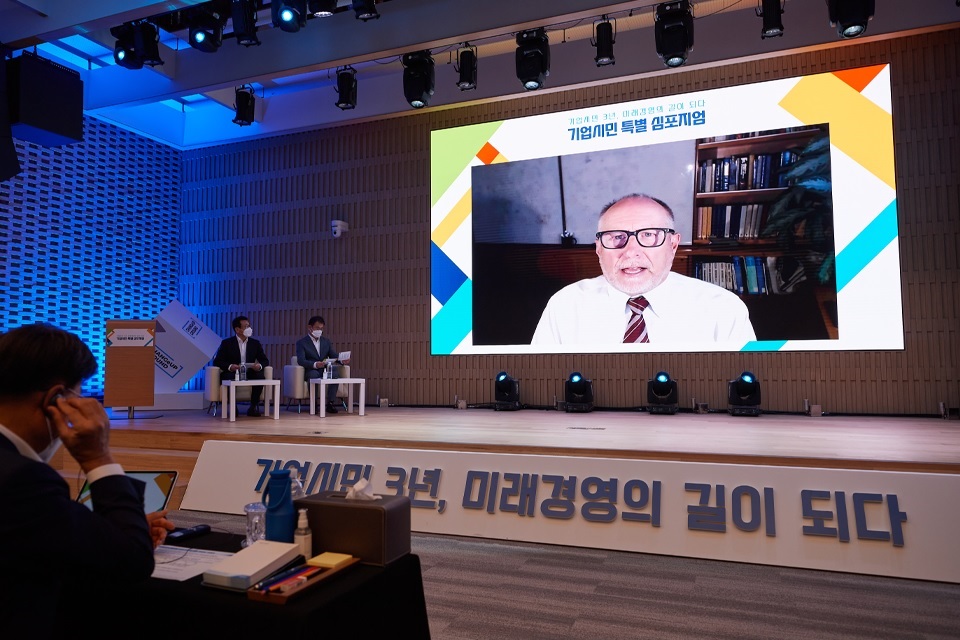l Officially registered with MBA as a strategy management case to be used in lectures for five years
l Providing vivid cases including management philosophy and interviews with executives and employees in corporate citizenship practice activities
l Professor William P. Barnett “Very excellent case from an evolutionary perspective of a company in the era of the rapid rise of ESG”
Stanford Graduate School of Business (MBA) is teaching “Corporate Citizenship,” which is the management philosophy of POSCO.
The concept and practical activities of corporate citizenship of POSCO were officially registered as a strategy management case at Stanford Graduate School of Business (MBA) in November last year and have been used in their curriculum, such as “Strategy and Organization,” since January this year.
A total of 600 Stanford MBA students will learn about POSCO’s corporate citizenship practices through various curriculum programs over the next five years. It can also be used in major universities, institutions and companies such as Harvard University, which signed a case sharing agreement with Stanford University.
Lectures will be given by William P. Barnett, the head professor of Stanford Graduate School of Business and a master of corporate evolution theory, who gave an keynote speech online at a special symposium on corporate citizenship that was held in July last year.
Professor William P. Barnett praised POSCO’s corporate citizenship management philosophy, saying, “Given the rapidly rising ESG trend, POSOCO’s preemptive declaration of its corporate citizenship management philosophy and efforts to practice with the creation of a Corporate Citizenship Charter and corporate citizenship practice guide are excellent examples from a corporate evolutionary perspective.”
To use the POSCO as official lecture material, Professor William P. Barnett conducted an in-depth analysis of POSCO’s corporate citizenship implementation process with representative Korean scholars such as Professor Kim Jae-gu from Myongji University, who is the next president of the Korean Academic Society of Business Administration, and Rhee Moo-weon, an Underwood Distinguished Professor at Yonsei University.
Based on the research results, he put together specific activities that showed how POSCO contributes to the creation of symbiotic values through the corporate citizenship management philosophy in the era of “stakeholder capitalism” and successfully responds to changes with the new management paradigm represented by ESG.
In particular, he described the CEO philosophy, one of the key success factors of corporate citizenship practice activities, and included vivid cases with interviews of executives and employees to practically help MBA students to indirectly experience decision making from the viewpoint of managers.
Meanwhile, POSCO has been cooperating with Korean universities since last year to raise awareness of the roles and participation of future generations in solving social issues and help generation MZ grow into global corporate citizens. Major universities such as the Catholic University of Korea, Sungkyunkwan University, Sookmyung Women’s University, Yonsei University, KAIST, POSTECH, and Hanyang University have opened regular courses on theme of the concept and practical activities of corporate citizenship or provided special lectures on these topics, and such activities will also continue this year.

▲ William P. Barnett, an endowed chair professor at Stanford Graduate School of Business, gives a keynote speech online at a special symposium on corporate citizens held in July 2021.
